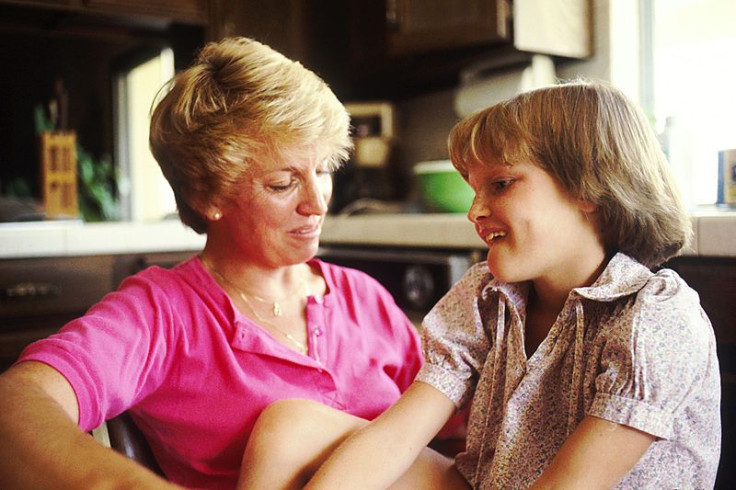Playing Favorites With Kids Could Help Moms Later On: How Favoritism Leads To Better Caregiving Arrangements

Children who share personal values and beliefs with their mom are more likely to be their mom’s favorite — especially, if they are daughters, according to a recent study.
The Purdue University study observed 406 moms between the ages of 65 and 75 over the course of seven years to evaluate the factors that contribute to moms choosing a favorite child and how that preference can lead to better caregiving arrangements for those moms in the future. The researchers looked at factors such as similar beliefs and values, as well as gender similarity, to see if they play a role in a mother’s long-term favoritism toward a child.
The findings of the study show that approximately three-fourths of mothers identified that the child who they favored as their preferred caregiver at the start of the study remained their favorite seven years later. A mom’s favoritism was found to be significantly correlated with sharing similar beliefs and values with her favorite child.
"Mothers were likely to continue to prefer children who they perceived were similar to them in their beliefs and values, as well as to prefer children who had cared for them before,” said Megan Gilligan, a collaborator in the study and assistant professor in human development and family studies at Iowa State University.
With regards to gender similarity, researchers found it to be a consistent factor in showing long-term favoritism. With no surprise, the mother-daughter connection was found to be the strongest, closest, and most supportive parent-child relationship, as shown in previous studies.
Factors such as a child’s financial independence, eventual adult role as a spouse or parent, consistent employment, and lawful behavior were investigated. Surprisingly, the researchers found that none of these factors played a significant role in changing a mother’s favorite. These factors mattered much less in comparison to sharing personal values.
Moms were even more inclined to favorite a child who previously engaged in deviant behaviors a few years ago but then stopped. "If a child engaged in deviant behaviors seven years ago but then stopped they were even more likely to be chosen than were siblings who never engaged in deviant behaviors,” Jill Suitor, a sociology professor who has been studying older parent relationships with adult children for nearly 30 years, said in the Purdue University news release.
It seems that a mother’s decision to play favorites is driven by the desire to find a caregiver who will make the best decisions for her in the future. “This is incredibly important with issues related to caregiving, and that is why understanding these family dynamics is so important,” said Suitor.
In the United States, nearly 10 million adult children older than 50 care for their aging parents. These family caregivers either provide personal care or financial assistance to their parents.



























